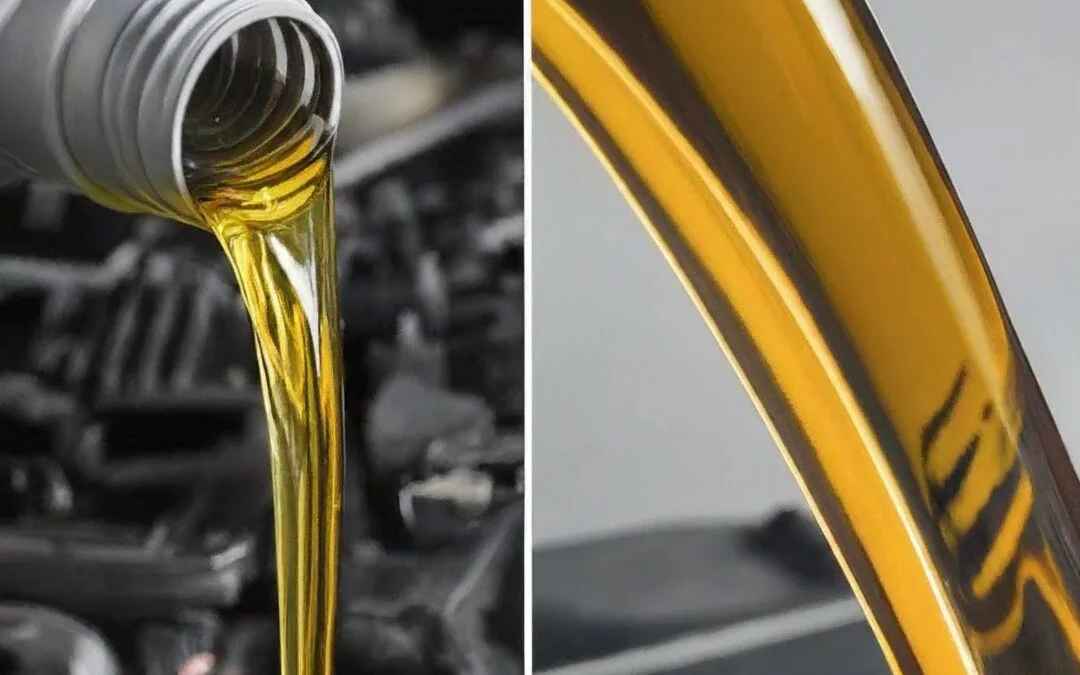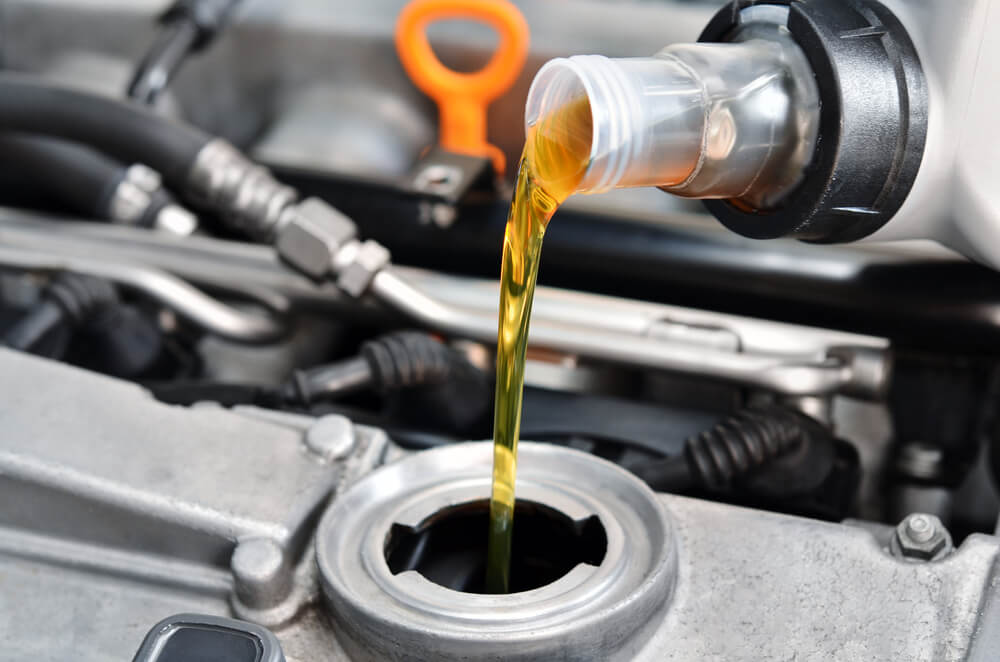Title: “Eco-Friendly Disposal: Where to Recycle Motor Oil
Introduction:
Used motor oil is a common byproduct of vehicle maintenance, and its improper disposal can have detrimental effects on the environment. Fortunately, there are responsible ways to deal with this waste material, and recycling it is a key step in reducing pollution and conserving valuable resources. In this blog, we will explore the various options available for recycling used motor oil, providing you with the knowledge you need to make eco-friendly choices and contribute to a cleaner, greener future. So, let’s dive into the world of motor oil recycling and discover where and how you can make a positive impact.
Why Recycle Motor Oil?
Recycling motor oil is not just a responsible choice; it’s an essential step in preserving our environment and safeguarding our natural resources. Here are compelling reasons why recycling motor oil matters:
- Environmental Protection: Used motor oil is a hazardous substance that can contaminate soil and water if improperly disposed of. Just one gallon of used oil can contaminate up to one million gallons of water, making recycling a crucial step in preventing environmental damage.
- Resource Conservation: Motor oil is a valuable resource that can be reprocessed and reused. By recycling, we reduce the need for virgin oil production, conserving finite resources and reducing energy consumption.
- Energy Efficiency: Recycling used motor oil consumes significantly less energy than refining crude oil to produce fresh lubricants. This translates to a reduced carbon footprint and lower greenhouse gas emissions.
- Legal and Ethical Responsibility: Many areas have strict regulations governing the disposal of motor oil. Proper recycling ensures compliance with these laws and reflects a commitment to responsible citizenship.
- Economic Benefits: Recycling used motor oil can generate revenue when collected and processed, providing incentives for individuals and businesses to participate in recycling programs.
- Support for a Circular Economy: Recycling motor oil is a critical element of the circular economy, where products and materials are kept in use for as long as possible, minimizing waste and environmental impact.
In summary, recycling motor oil is not just an option; it’s a responsible and necessary action. It helps protect our environment, conserves valuable resources, reduces energy consumption, and supports a sustainable future for generations to come. By choosing to recycle your motor oil, you play a vital role in making our world a cleaner and greener place.
Where to Recycle Motor Oil: A Guide to Responsible Disposal
Knowing where to recycle motor oil is a crucial part of environmentally responsible vehicle maintenance. Instead of letting used oil become an environmental hazard, you can easily recycle it at various locations. Here’s a guide to help you find the right place for responsible motor oil disposal:
- Local Auto Parts Stores and Service Centers:
- Many auto parts stores and service centers offer used motor oil recycling services.
- These locations are often convenient and familiar, making it easy for you to drop off your used oil during routine errands.
- Check with your local businesses to see if they participate in such programs.
- Municipal Recycling Centers:
- Most cities and counties operate recycling centers that accept used motor oil.
- These government-run facilities provide a safe and regulated environment for recycling hazardous materials like motor oil.
- Be sure to follow any guidelines or procedures set by your local recycling center.
- Environmental Organizations and Nonprofits:
- Various environmental organizations and nonprofits host periodic recycling events.
- Keep an eye on community calendars and websites for announcements about these events in your area.
- These events often provide an opportunity to recycle used motor oil along with other hazardous materials.
- Retailer Take-Back Programs:
- Some major retailers, such as auto parts stores and big-box stores, offer take-back programs where you can return used motor oil and oil filters.
- These programs are part of their commitment to environmental responsibility and may offer incentives like discounts on new oil purchases.
When preparing to recycle motor oil, it’s essential to take a few precautions:
- Safety Precautions: Ensure you wear protective gear, such as gloves and safety glasses, when handling used motor oil.
- Proper Containers: Use suitable containers, like sealable plastic jugs or oil drain pans, to store and transport the used oil.
- Check for Contaminants: Ensure the oil is free from contaminants like water, antifreeze, or solvents.
By taking these steps and utilizing the recycling options available in your community, you can play a vital role in reducing environmental harm and promoting a sustainable approach to vehicle maintenance. Recycling motor oil is not just a responsible choice; it’s an easy and impactful way to contribute to a cleaner, healthier planet.
Exploring Alternatives to Recycling Motor Oil
While recycling motor oil is the most responsible and eco-friendly way to dispose of it, there are some alternative approaches to consider when recycling isn’t immediately available or feasible. Here, we’ll explore two viable alternatives:
- Reusing Motor Oil:
- Reusing motor oil involves cleaning and filtering the used oil to remove contaminants, allowing it to be used again in your vehicle.
- When done correctly, reusing oil can save you money and reduce the need for fresh oil.
- Here’s a simplified process for reusing motor oil:
- Filter the oil through a fine mesh screen or a purpose-built oil filter.
- Store the cleaned oil in a suitable container, ensuring it’s free from contaminants like water or debris.
- Consult your vehicle’s manufacturer for guidelines on reusing oil, as some vehicles may have specific requirements.
Note: Not all used oil is suitable for reuse. If the oil is heavily contaminated or degraded, recycling is the better option.
2. DIY Oil Recycling:
- If recycling facilities are not readily available in your area, you can consider recycling motor oil at home, although this is a more advanced option.
- To do this, you’ll need to separate the oil from any contaminants and then properly dispose of the remaining materials.
- Here’s a basic outline for DIY oil recycling:
- Collect and store used motor oil in a dedicated container.
- Use a funnel to pour the oil through a coffee filter or cloth into another container to remove contaminants.
- Dispose of the filtered contaminants in accordance with local regulations.
- Store the cleaned oil in a suitable container for reuse or recycling.
- Remember that handling used motor oil, even for DIY recycling, requires safety precautions like wearing gloves and protective eyewear.
While these alternatives can be useful in certain situations, it’s essential to understand their limitations and the importance of proper handling. Always prioritize recycling whenever possible, as it’s the most environmentally responsible option, conserving resources and preventing pollution. Additionally, be aware of local regulations and guidelines governing the disposal and recycling of motor oil to ensure you’re following the law and protecting the environment.
Conclusion:
In the pursuit of a cleaner and more sustainable future, knowing where to recycle used motor oil is a small yet impactful step we can all take. Properly disposing of motor oil not only safeguards our environment but also conserves valuable resources and reduces our carbon footprint.
Whether you choose to utilize local auto parts stores, municipal recycling centers, environmental organizations, or retailer take-back programs, the options are plentiful. By following safety precautions, selecting suitable containers, and adhering to guidelines, you can play a significant role in protecting our planet.
In closing, responsible motor oil disposal is not just a choice; it’s a commitment to the well-being of our environment and the health of future generations. Together, we can ensure that every drop of used motor oil finds its way to a recycling facility, contributing to a greener and more sustainable world.
Useful links:
https://scdhec.gov/environment/recycling-waste-reduction/used-motor-oil-recycling
Frequently Asked Questions (FAQs) About Where to Recycle Used Motor Oil
Q1: Why is it essential to recycle used motor oil? A1: Recycling used motor oil is crucial because it prevents environmental contamination. Motor oil can be highly toxic to soil and water if disposed of improperly. Recycling helps conserve resources, reduces pollution, and promotes responsible waste management.
Q2: Where can I recycle used motor oil? A2: There are several options for recycling used motor oil, including local auto parts stores, municipal recycling centers, environmental organizations, and retailer take-back programs. Check with your local government or use online resources to find the nearest recycling location.
Q3: Can I recycle used motor oil at home? A3: While it’s possible to recycle motor oil at home, it can be more challenging and requires careful handling and filtration to remove contaminants. It’s generally recommended to use established recycling facilities for a safer and more effective process.
Q4: Are there any safety precautions I should take when recycling motor oil? A4: Yes, safety is crucial. Always wear protective gear, such as gloves and safety glasses, when handling used motor oil. Ensure the oil is stored in a proper container and is free from contaminants like water, solvents, or antifreeze.
Q5: What do I do with the oil filters when recycling motor oil? A5: Many recycling locations that accept used motor oil also take oil filters. Check with the recycling facility or program for specific instructions on how to prepare and drop off used oil filters.
Q6: Is there a cost associated with recycling used motor oil? A6: Many recycling programs accept used motor oil for free, while others may charge a small fee for the service. Retailer take-back programs may offer incentives, like discounts on new oil purchases, which can offset any potential costs.
Q7: Can I recycle other automotive fluids and materials along with used motor oil? A7: Recycling facilities often accept other automotive fluids, such as transmission fluid and brake fluid, as well as materials like oil containers and oil-soaked rags. Check with your chosen recycling location for their specific guidelines.
Q8: What happens to the recycled motor oil? A8: Recycled motor oil is reprocessed and cleaned to remove impurities. It can then be used as a base stock for new motor oil or in industrial applications, reducing the need for virgin oil production.
Q9: Is there a limit to how much used motor oil I can recycle? A9: The quantity you can recycle may vary by location, so it’s advisable to check with the recycling facility or program for any limitations. However, for personal use, it’s recommended to adhere to the general guideline of not mixing used oil with other substances and not storing it for an extended period.
Q10: How can I encourage others to recycle their used motor oil? A10: Spread the word about the importance of recycling motor oil and share information about recycling locations and programs in your area. Encourage friends and family to adopt responsible disposal practices and emphasize the environmental benefits of recycling. Together, we can make a positive impact on our planet.
Remember that proper disposal of used motor oil is not just a responsibility; it’s a simple yet powerful way to contribute to a cleaner and more sustainable environment.





Leave a Reply